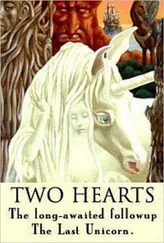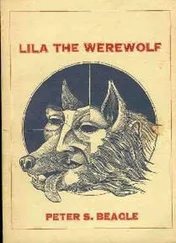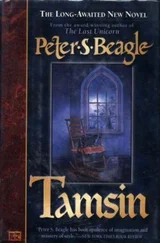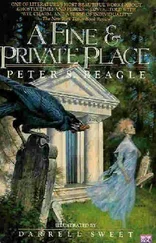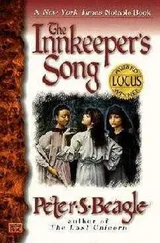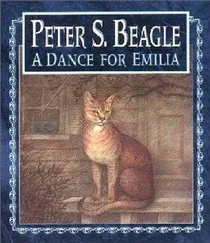Peter Beagle - The Line Between
Здесь есть возможность читать онлайн «Peter Beagle - The Line Between» весь текст электронной книги совершенно бесплатно (целиком полную версию без сокращений). В некоторых случаях можно слушать аудио, скачать через торрент в формате fb2 и присутствует краткое содержание. Жанр: Фэнтези, на английском языке. Описание произведения, (предисловие) а так же отзывы посетителей доступны на портале библиотеки ЛибКат.
- Название:The Line Between
- Автор:
- Жанр:
- Год:неизвестен
- ISBN:нет данных
- Рейтинг книги:5 / 5. Голосов: 1
-
Избранное:Добавить в избранное
- Отзывы:
-
Ваша оценка:
- 100
- 1
- 2
- 3
- 4
- 5
The Line Between: краткое содержание, описание и аннотация
Предлагаем к чтению аннотацию, описание, краткое содержание или предисловие (зависит от того, что написал сам автор книги «The Line Between»). Если вы не нашли необходимую информацию о книге — напишите в комментариях, мы постараемся отыскать её.
The Line Between — читать онлайн бесплатно полную книгу (весь текст) целиком
Ниже представлен текст книги, разбитый по страницам. Система сохранения места последней прочитанной страницы, позволяет с удобством читать онлайн бесплатно книгу «The Line Between», без необходимости каждый раз заново искать на чём Вы остановились. Поставьте закладку, и сможете в любой момент перейти на страницу, на которой закончили чтение.
Интервал:
Закладка:
Peter S. Beagle Oakland, California 2006
* * *
Gordon the Self–Made Cat
The first draft of «Gordon, the Self–Made Cat» was written more than forty years ago, when I was living on nine wild acres in the hills north of Santa Cruz, California, with my young family. We had an unguessable number of cats in those days, if you count not only the indoor and outdoor residents, but also the visitors who treated our peeling red shack as a sort of bed–and–breakfast establishment. What we definitely didn't have was a mouse problem (gophers were another matter). I made up the valiant Gordon to amuse the children, sent his story off to an animation company that had requested ideas for a feature film, shrugged at their almost immediate rejection, then buried the piece in my battered filing cabinet and completely forgot about it. It didn't surface again until 2001, when some friends stumbled across it while helping me move.
I'm currently working on expanding it, adding new characters and more adventures, for eventual book publication. I've always loved Charlotte's Web and Stuart Little; the longer version of Gordon will be my own small nod in that very challenging direction.
Once upon a time to a family of house mice there was born a son named Gordon. He looked very much like his father and mother and all his brothers and sisters, who were gray and had bright, twitchy, black eyes, but what went on inside Gordon was very different from what went on inside the rest of his family. He was forever asking why everything had to be the way it was, and never satisfied with the answer. Why did mice eat cheese? Why did they live in the dark and only go out when it was dark? Where did mice come from, anyway? What were people? Why did people smell so funny? Suppose mice were big and people were tiny? Suppose mice could fly? Most mice don't ask many questions, but Gordon never stopped.
One evening, when Gordon was only a few weeks old, his next–to–eldest sister was sent out to see if anything interesting had been left open in the pantry. She never returned. Gordon's father shrugged sadly and spread his front paws, and said, «The cat.»
«What's a cat?» Gordon asked.
His mother and father looked at one another and sighed. «They have to know sometime," his father said. «Better he learns it at home than on the streets.»
His mother sniffled a little and said, «But he's so young," and his father answered, «Cats don't care.» So they told Gordon about cats right then, expecting him to start crying and saying that there weren't any such things. It's a hard idea to get used to. But Gordon only asked, «Why do cats eat mice?»
«I guess we taste very good," his father said.
Gordon said, «But cats don't have to eat mice. They get plenty of other food that probably tastes as good. Why should anybody eat anybody if he doesn't have to?»
«Gordon," said his father. «Listen to me. There are two kinds of creatures in the world. There are animals that hunt, and animals that are hunted. We mice just happen to be the kind of animal that gets hunted, and it doesn't really matter if the cat is hungry or not. It's the way life is. It's really a great honor to be the hunted, if you just look at it the right way.»
«Phooey on that," said Gordon. «Where do I go to learn to be a cat?»
They thought he was joking, but as soon as Gordon was old enough to go places by himself, he packed a clean shirt and some peanut butter, and started off for cat school. «I love you very much," he said to his parents before he left, «but this business of being hunted for the rest of my life just because I happened to be born a mouse is not for me.» And off he went, all by himself.
All cats go to school, you know, whether you ever see them going or not. Dogs don't, but cats always have and always will. There are a great many cat schools, so Gordon found one easily enough, and he walked bravely up the front steps and knocked at the door. He said that he wanted to speak to the Principal.
He almost expected to be eaten right there, but the cats — students and teachers alike — were so astonished that they let him pass through, and one of the teachers took him to the Principal's office. Gordon could feel the cats looking at him, and hear the sounds their noses made as they smelled how good he was, but he held on tight to the suitcase with his shirt and the peanut butter, and he never looked back.
The Principal was a fat old tiger cat who chewed on his tail all the time he was talking to Gordon. «You must be out of your mind," he said when Gordon told him he wanted to be a cat. «I'd smack you up this minute, but it's bad luck to eat crazies. Get out of here! The day mice go to cat school…»
«Why not?» said Gordon. «Is it in writing? Where does it say that I can't go to school here if I want?»
Well, of course there's nothing in the rules of cat schools that says mice can't enroll. Nobody ever thought of putting it in. The Principal folded his paws and said, «Gordon, look at it this way — "
«You look at it my way," said Gordon. «I want to be a cat, and I bet I'd make a better one than the dopey–looking animals I've seen in this school. Most of them look as if they wouldn't even make good mice! So let's make a deal. You let me come to school here and study for one term, and if at the end of that time I'm not doing better than any cat in the school — if even one cat has better grades than I have — then you can eat me and that'll be the end of it. Is that fair?»
No cat can resist a challenge like that. But before agreeing, the Principal insisted on one small change: at the end of the term, if Gordon didn't have the very best marks in the school, then the privilege of eating him would go to the cat that did.
«Ought to encourage some of those louts to work harder," the Principal said to himself, as Gordon left his office. «He's crazy, but he's right — most of them wouldn't even make good mice. I almost hope he does it.»
So Gordon went to cat school. Every day he sat at his special little desk, surrounded by a hundred kittens and half–grown cats who would have liked nothing better than to leap on him and play games with him for a while before they gobbled him. He learned how to wash himself, and what to do to keep his claws sharp, and how to watch everything in the room while pretending to be asleep. There was a class on Dealing With Dogs, and another on Getting Down From Trees, which is much harder than climbing up, and also a particularly scholarly seminar on the various meanings of «Bad Kitty!» Gordon's personal favorite was the Visions class, which had to do with the enchanting things all cats can see that no one else ever does — the great, gliding ancestors, and faraway castles, and mysterious forests full of monsters to chase. The Professor of Visions told his colleagues that he had never had such a brilliant student. «It would be a crime to eat such a mouse!» he proclaimed everywhere. «An absolute, shameful, yummy crime.»
The class in Mouse–Hunting was a bit awkward at first, because usually the teacher asks one of the students to be the mouse, and in Gordon's case the Principal felt that would be too risky. But Gordon insisted on being chased like everyone else, and not only was he never caught (well, almost never; there was one blue Persian who could turn on a dime), but when he took his own turn at chasing, he proved to be a natural expert. In fact his instant mastery of the Flying Pounce caused his teacher and the entire class to sit up and applaud. Gordon took three bows and an encore.
There was also a class where the cats learned the necessities of getting along with people: how to lie in laps, how to keep from scratching furniture even when you feel you have to, what to do when children pick you up, and how to ask for food or affection in such a sweet manner that people call other people to look at you. These classes always made Gordon a little sad. He didn't suppose that he would ever be a real «people» cat, for who would want to hold a mouse on his lap, or scratch it behind the ears while it purred? Still, he paid strict attention in People Class, as he did in all the others, for all the cats knew that whoever did best in school that term would be the one who ate him, and they worked harder than they ever had in their lives. The Principal said that they were becoming the best students in the school's history, and he talked openly about making this a regular thing, one mouse to a term.
Читать дальшеИнтервал:
Закладка:
Похожие книги на «The Line Between»
Представляем Вашему вниманию похожие книги на «The Line Between» списком для выбора. Мы отобрали схожую по названию и смыслу литературу в надежде предоставить читателям больше вариантов отыскать новые, интересные, ещё непрочитанные произведения.
Обсуждение, отзывы о книге «The Line Between» и просто собственные мнения читателей. Оставьте ваши комментарии, напишите, что Вы думаете о произведении, его смысле или главных героях. Укажите что конкретно понравилось, а что нет, и почему Вы так считаете.

